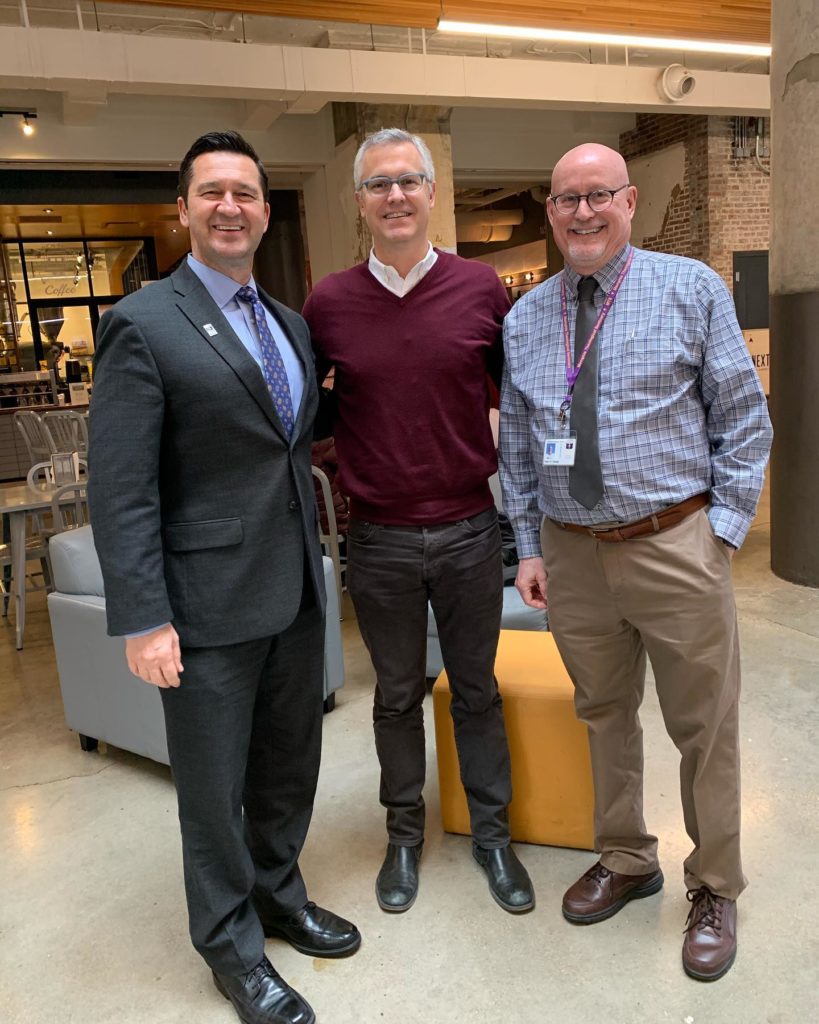
When Todd Richardson first stood in front of the dilapidated Sears Crosstown building and considered shaping its future, the 1.5 million-square-foot building had been abandoned since 1993. Many in Memphis considered the building an eyesore, destined for demolition. But Richardson saw potential.
Richardson, then an art professor at the University of Memphis, and Christopher Minor, a video artist, worked with consultants to conduct a feasibility study into the building’s renovation. The verdict: the building could be saved, but not without buy-in from a large and diverse pool of stakeholders. Within three years, eight local organizations had agreed to lease more than 40,000 square feet of the building.
Richardson and Minor went on to co-found Crosstown Arts, with two goals: to create a vision for the building’s redevelopment, and to cultivate creative community in Memphis.
To some, Richardson’s vision for Sears Crosstown might have seemed like a pipe dream. But to Richardson, it was something more like faith.
Before Richardson completed his PhD in Art History in the Netherlands, or his Master of Arts in the History of Art and Religion from Graduate Theological Union in Berkeley, California, Richardson graduated from Memphis Theological Seminary in 2000, with a Master of Arts in Religion.
“My time at MTS really impacted my level of empathy, so that I could put myself in other people’s shoes in a way that I hadn’t before,” Richardson says, “There were some really hard conversations that we were able to have because we were at the seminary and in Memphis, and that’s a pretty unique thing. When I moved to Berkeley, California, they weren’t having those conversations.”
“At Crosstown, we talk about proximity a lot. The whole goal is—if we’re better together, then it’s gotta be everybody who’s better together, and not just a select few. If you take just Church Health, Methodist, and ALSAC, that accounts for about 1,000 of the employees that work at Crosstown, and then there are 55,000 patients at Church Health that are treated here every year. Then you have NexAir, which is the largest privately-owned gas distribution company in the Southeast, and their executive offices are right next door to Church Health.”
“People are coming and going, with different backgrounds, different demographics, different incomes, and that can lead to some social friction—at Crosstown Arts we call it ‘creative tension’—but that’s the whole point of being in a kind of lab. Crosstown Concourse is a big experiment, and if you’re not creating some tension, then you’re not learning, and you’re not innovating or trying to think about things from a new perspective.”
“So we think about Crosstown Concourse as being a microcosm of the city—it’s not perfect, and we fail every day—but in terms of the 3,000 people who are coming and going every day, we hope for it to be a microcosm of the city such that things can be tested here, whether it’s financial literacy or issues related to transportation or health, and if it’s successful here, then it might be successful on a larger scale.”
